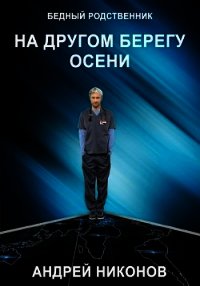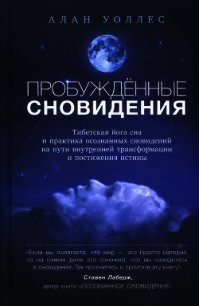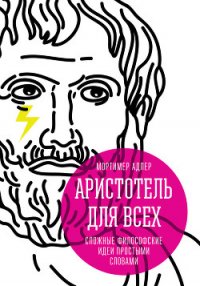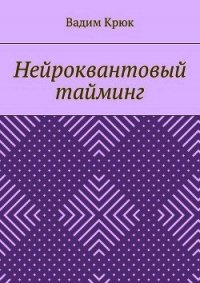Структура реальности - Дойч Дэвид (читать книги онлайн бесплатно без сокращение бесплатно txt) 📗
В свете всех объединяющих идей, о которых я говорил, как-то: квантовое вычисление, эволюционная эпистемология и концепции познания с позиций мультиверса. свободная воля и время, — мне кажется ясным, что современная тенденция в нашем всеобъемлющем понимании реальности именно такова, на какую я надеялся, будучи ребенком. Наше знание становится шире и глубже, причем, как я отметил в главе 1, глубина побеждает. Но в этой книге я претендовал на нечто большее. Я защищал конкретное единое мировоззрение, основанное на четырех нитях: квантовой физике вселенной, эпистемологии Поппера, теории эволюции Дарвина -Доукинса и усиленной версии теории универсального вычисления Тьюринга. Мне кажется, что при современном состоянии нашего научного знания придерживаться такого взгляда «естественно». Это консервативный взгляд, который не предлагает никаких пугающих изменений в наших лучших фундаментальных объяснениях. Значит, он должен стать общепринятым, таким, относительно которого судят о предложенных новшествах. Я защищаю именно такую роль этого взгляда. Я не надеюсь создать новую традицию; я далек от этого. Как я уже сказал, я считаю, что пора двигаться дальше. Но мы можем перейти к лучшим теориям только тогда, когда всерьез воспримем лучшие из наших существующих теорий, как объяснения мира.
Библиография
Richard Dawkins, The Selfish Gene, Oxford University Press, 1976. [Revised edition 1989.]
Richard Dawkins, The Blind Watchmaker, Longman, 1986, Norton, 1987; Penguin Books, 1990.
David Deutsch, «Comment on „The Many Minds Interpretation of Quantum Mechanics“ by Michael Lockwood», British Journal for the Pholosophy of Science, 1996, Vol.47, No. 2, p. 222.
David Deutsch and Michael Lockwood, «The Quantum Physics of Time Travel» Scientific American, March 1994, p. 68.
Douglas R. Hofstadter, Godel, Escher, Bach, an Eternal Golden Braid. Harvester, 1979, Vintage Books, 1980.
James P.Hogan, The Proteus Operation, Baen Books, 1986, Century Publishing, 1986. [Fiction!]
Bryan Magee, Popper, Fontana, 1973, Viking Penguin, 1995.
Karl Popper, Conjectures and Refutations, Routledge, 1963, Harper-Collins, 1995.
Karl Popper, The Myth. of the Framework, Routledge, 1992.
John Barrow and Frank Tipler, The Anthropic Cosmological Principle, Clarendon Press, 1986.
Charles H. Bennett, Gilles Brassard and Artur K. Ekert, «Quantum Cryptography», Scientific American, October 1992.
Jacob Bronowski. The Ascent of Man, ВВС Publications, 1981, Little Brown, 1976.
Julian Brown, «A Quantum Revolution for Computing», New Scientist, 24 September 1994.
Paul Davies and Julian Brown, The Ghost in the Atom, Cambridge University Press, 1986.
Richard Dawkins, The Extended Phenotype, Oxford University Press, 1982.
Daniel C.Dennett, Darwin's Dangerous Idea: Evolution and the Meanings of Life, Alien Lane, 1995; Penguin Books, 1996.
Bryce S.DeWitt and Neill Graham (eds), The Many-Worlds Interpretation of Quantum Mechanics, Princeton University Press, 1973.
Artur K. Ekert, «Quantum Keys for Keeping Secrets», New Scientist, 16 January 1993.
Freedom and Rationality: Essays in Honour of John Watkins, Kluwer, 1989.
Ludovico Geymonat, Galileo Galilei: A Biography and Inquiry into his Philosophy of Science, McGraw-Hill, 1965.
Thomas Kuhn, The Structure of Scientific Revolutions, University of Chicago Press, 1971.
Imre Lakatos and Alan Musgrave (eds), Criticism and the Growth of Knowledge, Cambridge University Press, 1979.
Seth Lloyd, «Quantum-mechanical Computers», Scientific American, October 1995.
Michael Lockwood, Mind, Brain and the Quantum, Basil Blackwell, 1989.
Michael Lockwood, «The Many Minds Interpretation of Quantum Mechanics», British Journal for the Pholosophy of Science, 1996, Vol. 47, №2.
David Miller (ed), A Pocket Popper, Fontana. 1983.
David Miller, Critical Rationalism: A Restatement and Defense, Open Court, 1994.
Ernst Nagel and James R.Newman, Godel's Proof, Routledge 1976. Anthony O'Hear, Introduction to the Philosophy of Science, Oxford University Press, 1991.
Roger Penrose. The Emperor's New Mind: Concerning Computers. Minds, and the Laws of Physics. Oxford University Press, 1989.
Karl Popper Objective Knowledge: An Evolutionary Approach, Clarendon Press, 1972.
Randolph Quirk, Sidney Greenbaum, Geoffrey Leech and Jan Svartvik, A Comprehensive Grammar of the English Language, 7th edn, Longman, 1989.
Dennis Sciama, The Unity of the Universe, Faber & Faber, 1967.
Ian Stewart, Does God Play Dice: The Mathematics of Chaos, Basil Blackwell, 1989; Penguin Books, 1990.
L. J. Stockmeyer and A. K. Chandra, «Intrinsically Difficult Problems». Scientific American. May 1979.
Frank Tipler, The Physics of Immortality, Doubleday, 1995.
Alan Turing, «Computing Machinery and Intelligence», Mind, October 1950. [Reprinted in the The Mind's I, edited by Douglas R. Hofstadter and Daniel C.Dennett, Harvester, 1981.]
Steven Weinberg, Gravitation and Cosmology, John Wiley, 1972.
Steven Weinberg, The First Three Minutes, Basic Books, 1977. [Русский перевод: Вайнберг С. Первые три минуты. — М.: Энергоиздат, 1981.]
Steven Weinberg. Dreams of a Final Theory, Vintage, 1993, Random, 1994.
John Archibald Wheeler, A Journey into Gravity and Spacetime, Scientific American Library, 1990.
Lewis Wolpert, The Unnatural Nature of Science, Faber & Faber, 1992, HUP, 1993.
Benjamin Woolley, Virtual Worlds, Basil Blackwell, 1992; Penguin Books,1993.




